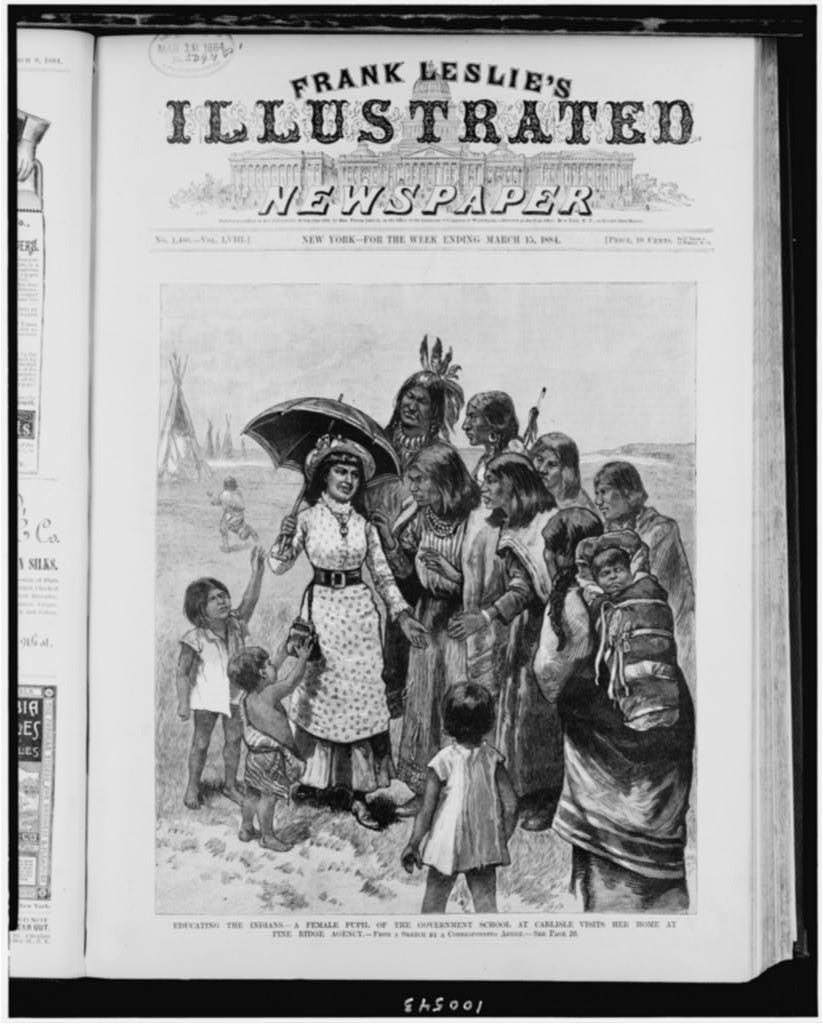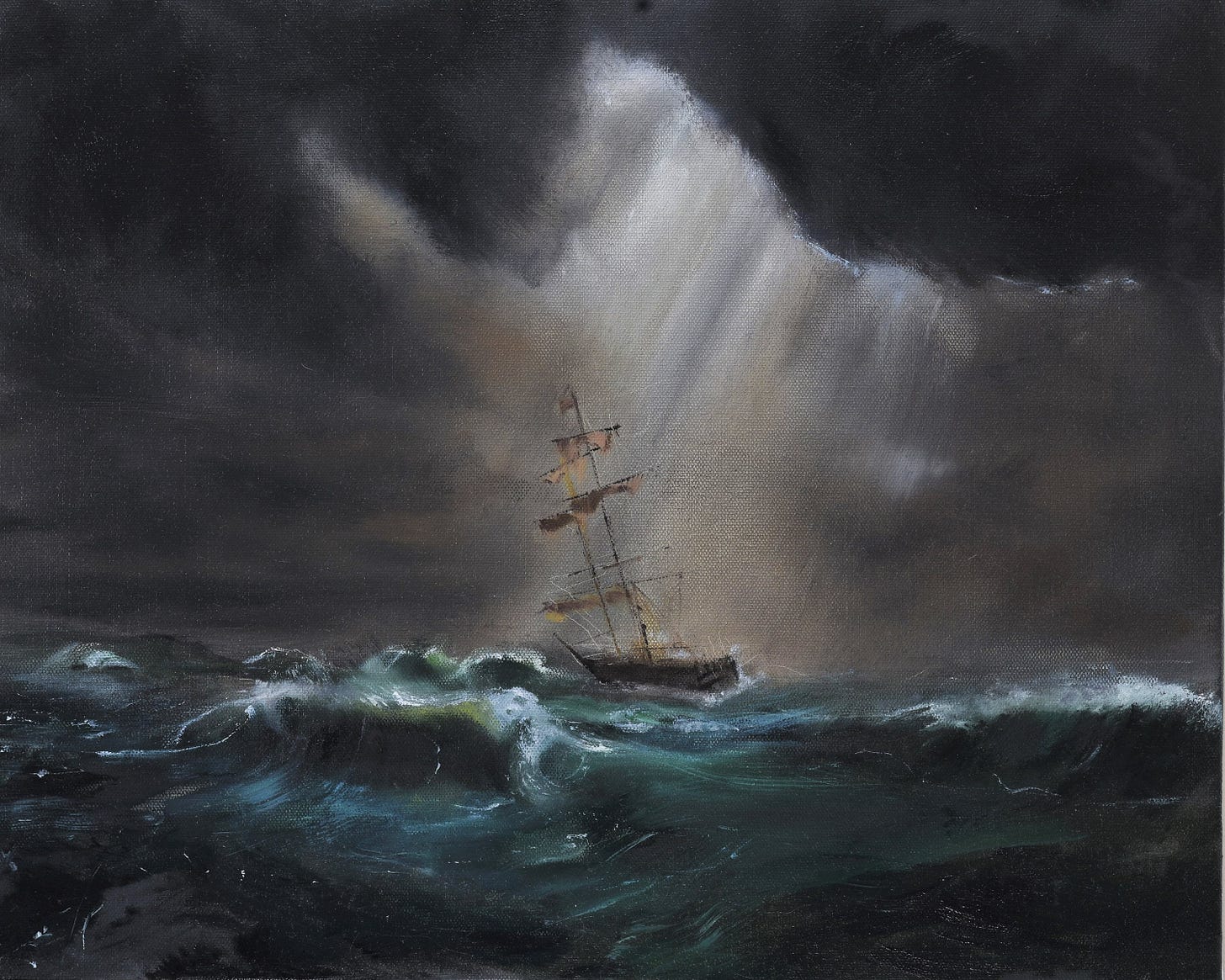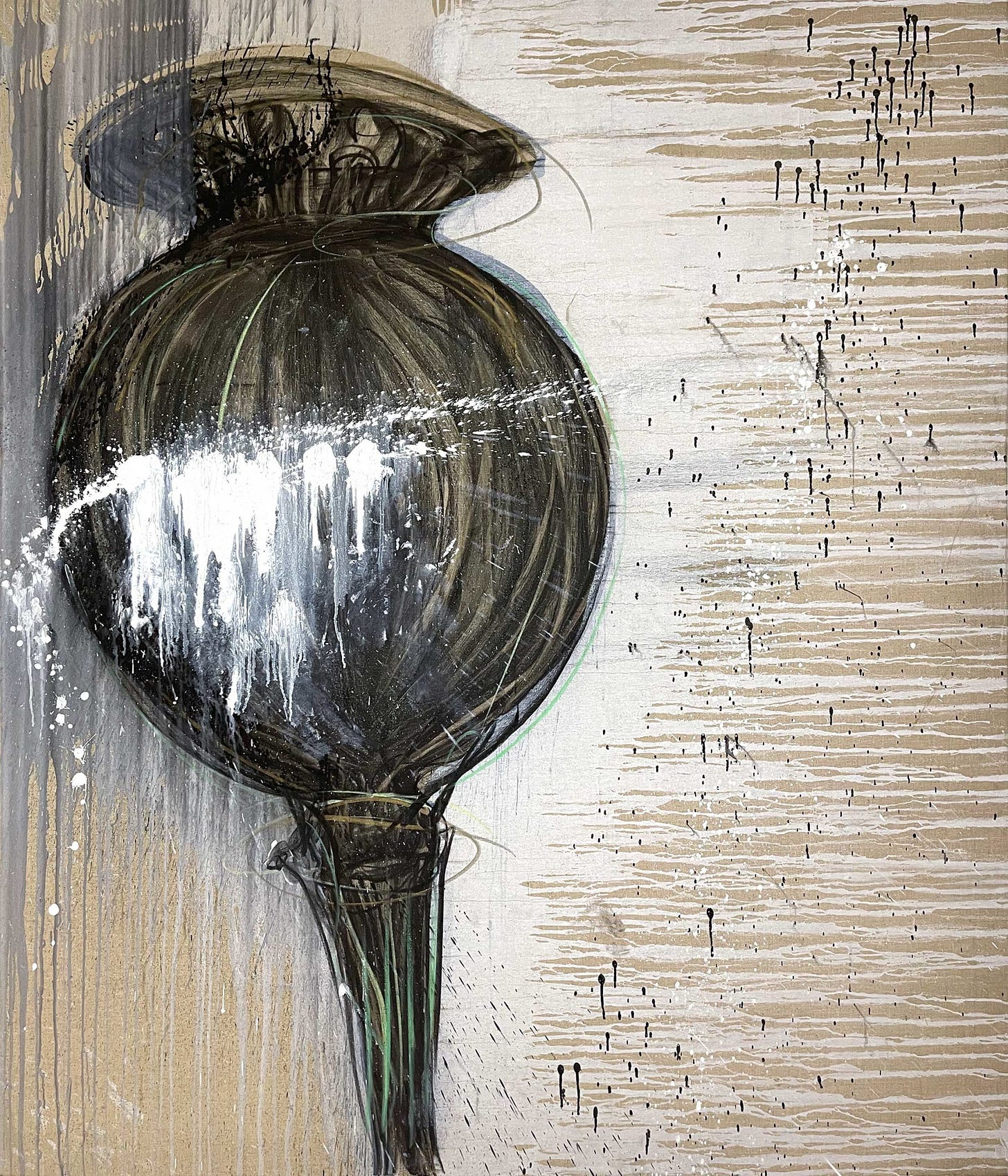Gravity's Rainbow - Part 3 - Chapter 5.1: A Game of Chess
Analysis of Gravity's Rainbow, Part 3 - Chapter 5.1: Vaslav Tchitcherine, The New Turkic Alphabet, Džaqyp Qulan , Tchitcherine and Wimpe, Chu Piang
Tchitcherine in the Zone
The Zone, despite being a state wiped blank, now being rewritten, has remnants that can never be fully removed. Like the minefields that line cow pastures, other rubbish, tangible or ideological, lies about as well. It has become a part of this Zone, providing the canvas with a texture that each new feature, each person or animal that comes in contact with it, will have to react to in some way. For, each zone can never be fully wiped clean; they are built but lined with the history and the facts of their suffering.
Through this portion of the Zone walks Vaslav Tchitcherine, “who is more metal than anything else” (337). His mechanized and metallic nature could be a reference to the mythological character of V. from Thomas Pynchon’s debut novel, V.1, calling to mind the mechanization and industrialization of the world, leading us from an age where things were built by hand, where combat was fought fairly and with people, to an age where everything was run by machines and where people were killed by men in offices hundreds or thousands of miles away who had simply pushed a button.
He works for TsAGI, one of the many rocket scavenging groups sent into Germany after the war had ended. Whereas SPOG was the American group led by Marvy, TsAGI is the Soviet led group. Tchitcherine himself, a Russian, traverses this zone, scavenging what he can find for this agency, knowing very well that things are not as simple as they seem. A task given him, both by himself and by Them, has even been to “annihilate the Schwarzkommando and his mythical half-brother, Enzian” (338). On top of scavenging for specific rocket parts, working for agencies that are not looking for the betterment of society, and traversing the Zone itself, Tchitcherine seems more and more to be the Soviet version of Slothrop. We see that he comes from a stock of either working class or revolutionary citizens and that he has “his own faithful network of fräuleins around the Zone” (338) — his own group of girls in a foreign country.

Tchitcherine in Kyrgyzstan
A bit on his past. Tchitcherine’s job, “During the early Stalin days,” (338) was to introduce the New Turkic Alphabet (NTA) to the Kirghiz, a group of indigenous people living mainly in Kyrgyzstan and other Central Asian territories. This introduction was a form of subtle linguistic imperialism. The pretense was that the Kirghiz people were functionally illiterate without a script, only relying on “speech, gesture, [and] touch,” (338) and it would thus be irresponsible not to help them achieve literacy. However, the society they were introducing this new form of language to had existed until that day without it. It had been highly functional and successful, yet They decided to introduce a creation of their own into this society. Firstly, since They were largely unable to communicate with this group (and many other groups like it), this posed a major blind spot for Their total control of the world. Secondly, an introduction of a creation of Their own would thus allow Them to remap the brain of the indigenous people to Their liking. We are done with symbols of love, metaphors, and the like. Now, we must know the literal sense of what is being spoken — the quintessential meaning of each utterance. Their map of the world — Their switchboard of control — would be wholly incomplete without the knowledge of each and every moving group within. This distribution was all an order given to Tchitcherine though, and as he was not one of the higher-ups, while he likely knew that there were more nefarious intentions there, it was not his true will to enact or know exactly what they were. Instead, he was there, and not entirely happy about it.
Tchitcherine was there with fellow exile Galina (the connoisseuse of silences) and her trainee, Luba, Chu Piang (the Chinese swamper), and Džaqyp Qulan (the Kirghiz schoolteacher). Qulan was a part of one of the many indigenous groups within the Kyrgyzstan region, and he was unaware if he was able to even trust Tchitcherine. For, Tchitcherine was a Russian, and, in 1916, the Russians committed a genocide against Qulan’s tribe and many tribes in the region, even killing his father. In this time, the Russian Czar saw the possibility of furthering his territory, realizing that the Kirghiz land was ripe for taking from the natives. So, as often happened, the Czar began massacring these natives, clearing the path to take the land. It is an event paralleled numerous times, from the Herero genocide to that of the Native Americans, from the Holocaust to even the extinction of the Dodoes (1.14), and many other times named and unnamed within the novel. It was, therefore, ironic that Qulan was out there assisting in the Westernization, or at least Latinization, of the same natives that were slaughtered. He wonders if it was because it was under the name of a new and declaredly kinder, more progressive, leader. One whom he believed would “Be Kind To the Nationalities” (340). He was being used, and even if he did not fully realize it, the idea festered somewhere, stored away in the back of his mind.
Qulan was also a voice of reason, though usually unheard, to Tchitcherine. He questioned his incessant search for Enzian, wondering what fact led him to seek to kill Enzian. Qulan warned him that Enzian’s destruction would not prolong his own life, and that it would be better to simply live without his senseless vengeance.
As Qulan and Tchitcherine travel through this land, Tchitcherine rides a horse named Snake. This is the same horse that Crutchfield rode in Slothrop’s vision as he travelled down the Roseland Ballroom toilet (1.10), Crutchfield being not just the “‘archetypal’ westwardman, but the only” (1.10, pg. 67) westwardman. Crutchfield was Slothrop’s vision of the synthesis of colonizers and those who slaughtered the natives to expand Westward. He too rode Snake, the untamable horse, as Tchitcherine does now. And no matter how either of the two, or any other future riders (which there will be), attempts to tame the untamable natural world, they will only fail — or at least succeed until nature again is ready to take over.
There were a number of rumors as to why Tchitcherine was sent on this odd job in Central Asia, for he was working within the Soviet Union before being exiled to what he would consider the middle of nowhere. First, he was seeing a Soviet courtesan who also saw ministers of a far higher status than he. And one thing is for sure: They certainly don’t want to share the spoils with anyone below them. So, according to this first theory, due to his seeing of her, he had “a thinning out of career possibilities” (343) which led him to — or, less explicitly, forced him to — accept this job.
The second rumor was that he had connections with “Wimpe, the head salesman for Ostarzneikunde GmbH, a subsidiary of the IG” (344). Wimpe was the man who attended the obscure seance conducted by Eventyr for Weissmann who had recently returned from Südwest (1.18 — pg. 152), and who was also mentioned in Rathenau’s seance (1.19) as “the expert on cyclized benzylisoquinilines” (166) which will come back around soon. Wimpe’s close connection with Weissmann/Blicero, his specialization on synthesized drugs relating to control and coal tars, and his work abroad for IG Farben (thus signifying to many that he was a German spy), all make him quite the interesting figure. No wonder people don’t believe that Tchitcherine had any involvement with him; for, being so powerful, if anyone would have found out about Tchitcherine’s involvement with him, “there’s no possible way his life could have been spared” (344). Though, their knowing each other was not entirely impossible.
Wimpe was “passionate about organic chemistry” (344). He was a man of science who viewed organic chemistry as a game of chess. Wimpe found immense passion and literal faith in the science of synthesis — the innumerable possibilities in the bonds between carbon, hydrogen, and organic atoms. It gave him faith, for it allowed him to play God, creating entirely new compounds that even his own God could not — or did not dare. With this passion, he began to focus (as told in 1.19 and again here) on cyclized benzylisoquinilines: a series of designer drugs which also allowed for some finicky patent work. These drugs were derivatives of synthesized opium, taking certain opiates and attaching different, small groups: “an ethyl group, here,” or “two hydrogens, a hydroxyl, a hydrochloride” (345) there, or just a mixture of various types. These minute and seemingly meaningless changes allowed for two things. First, for the designer nature of these drugs to attract the consumer just “As the French do with their dresses” (345) when they subtly alter the style. But secondly, and more importantly, this minor alteration of already prescribable drugs allows their patents to be reupped whenever they are about to expire, thus never allowing said drug(s) to become generic and simultaneously allowing the profits to always reach the top. And along with that, the ability for these drugs to completely subdue pain itself, men on the battlefield would become near super soldiers, as Tchitcherine himself did, since they would charge, pain free, into whatever came upon them.
Chu Piang, the Chinese Swamper who is a part of Tchitcherine’s group among the Kirghiz, knows enough about the type of stuff Wimpe is into. He became addicted to opium as the West trafficked the drug into China, purposefully making much of the country dependent on the substance in order to profit on its trade. When China wanted to cease the import of this drug into their country, wars were even begun as the traders could not allow such a decrease in profit. And if all this were possible regarding the most basic version of the drug, Chu Piang thought, imagine the possibilities, the profit-margins, that could be derived from an infinity of variations, each with their own little difference. Often enough, the bourgeoisie finds a fascination with the possibility that such an addiction could exist. Chu Piang became something to gawk at as the wealthy made their way across seas to see the pits of human depravity from a safe vantage.
Now, here with Tchitcherine, Chu Piang has finally found someone to partake with him in the smoking of opium. He prefers it to the other drugs that people smoke out here. So, the two hide in the outskirts of town, Tchitcherine providing the pipe and Piang the opium, smoking in friendship, sharing stories. Tchitcherine ponders how it is even possible that such a substance can be connected with the scientific mutants that are what Wimpe showed him in the past. Just as we have taken coal tar and synthesized it into innumerable deadly plastics, we have also taken opium and done the same, creating a new era of pharmaceutical synthesis and control.
Up Next: The second half of Part 3, Chapter 5
Pynchon, Thomas. V. Philadelphia, J. B. Lippincott & Co., 1963.




![Eaters of Opium [Vasily Vereshchagin] | Sartle - Rogue Art History Eaters of Opium [Vasily Vereshchagin] | Sartle - Rogue Art History](https://substackcdn.com/image/fetch/$s_!rq8q!,w_1456,c_limit,f_auto,q_auto:good,fl_progressive:steep/https%3A%2F%2Fsubstack-post-media.s3.amazonaws.com%2Fpublic%2Fimages%2F7c96395e-6343-4560-925f-3da8ed928329_800x696.jpeg)
One of the things that gets missed in my obsessing over the history in Pynchon is his unbelievable talent as a descriptive writer. How he can describe faces, Galina: "Her eyes hide in iron shadows, the orbits darkened as if by very precise blows. Her jaw is small, square, levered forward, the lower teeth more apt to show when she speaks..."
It's made more brilliant by the fact that tchicherine was just thinking to himself, that he doesn't remember her specifically, doesn't want to: "Galina won't even be a proper memory. Already she is more like the shape of an alphabet"... To me that is such a familiar internal monologue, one part of me says, "I'm so abstracted from that part of my life I can't even remember it" and then another part of me, the part of me that was formed when there was that relationship, when I did know that person, remembers them.
Just expert-level word mastery you don't get anywhere else.
Rilke shows up again here, in Galina's passage; to my shame I'm using the new Penguin edition because I can't bear to write in any of my copies of the true editions, so I have the wrong page numbers.
From the David Young translations, which I highly recommend, tenth elegy:
"Oh how an angel would stomp out their Consolation Market, leaving no trace --
the church beside it too..."
reminiscent of a rocket strike